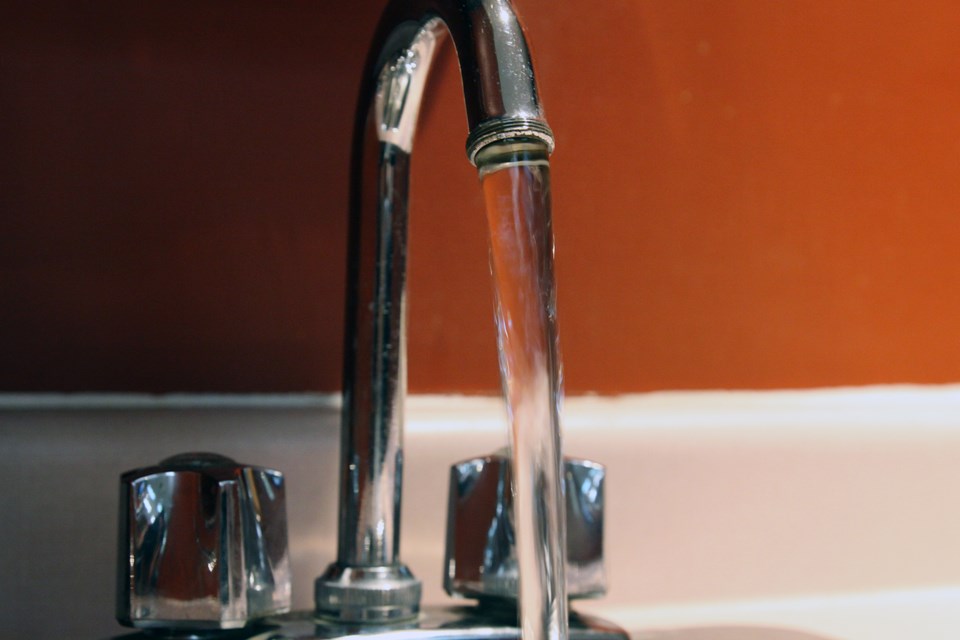THUNDER BAY – The City of Thunder Bay could open the taps a little further on a program that offers interest-free loans to homeowners to replace lead water service connections, pending a city council vote on Monday.
Changes to the lead water loan program recommended by city administration would bump the maximum loan amount from $3,000 to $5,000, and add a limited number of smaller grants for low-income homeowners.
Around 8,000 local homes, mostly those built prior to the mid-1950s, still have service connections containing lead, the city estimates. Previous estimates had put the number at 8,700 homes.
Even small amounts of the metal can cause health problems when it leaches into drinking water. Exposure is particularly dangerous for children, with the potential to affect brain and nervous system development.
The city estimated in 2020 that over 1,000 homes still had levels of lead in their drinking water above provincial guidelines of 10 micrograms per litre.
The city discontinued its sodium hydroxide program that mitigated lead contamination last year, over concerns it had caused an alarming jump in pinhole leaks across the city.
The issue has prompted a $350-million class-action lawsuit filed by local residents and another $350,000 suit filed by St. Joseph’s Care Group.
With the sodium hydroxide program suspended, the municipal government instead provided water pitchers and filters to homes with lead connections, but has stated it’s not an ideal long-term solution.
Since the city’s loan program launched in the summer 2020, only 46 loans have been issued, while 14 others were approved but not yet issued.
Coun. Andrew Foulds conceded that amounts to “a small dent” in the overall problem, but said there are promising signs the program is building momentum.
“We’re moving slowly on this,” he said. “However, in the last year, we’ve seen a huge increase in the number of services replaced, so we’re moving in the right direction.”
“There’s some very good news in this report – 46 households took advantage of the loan program. But I’m told the number of people that have replaced their lead services is quite a bit higher than that,” with additional households replacing connections without using the loan program.
The rate of replacement for private lead water connections, while still low, was higher than ever this year, Foulds said he’d been told by city staff. The city was not immediately able to confirm details of the program Thursday.
The Current River ward councillor proposed the loan program along with Coun. Kristen Oliver last year, with council supporting the creation of a $1.35 million loan envelope.
Around $1.18 million of that remains available, according to a report from Michelle Warywoda, director of the city’s environment division.
The program is expected to cost the city around $100,000, including lost interest revenue over the lifetime of the loans, and costs to administer the program.
The recommendation to increase the maximum loan amount to $5,000 was made after the city found costs for homeowners were higher than its initial estimate of $2,000 to $4,000.
Based on a review of applications over the past two construction seasons, the city found the average homeowner paid $5,100, plus restoration costs.
It’s an expense that’s out of reach for many homeowners, said Foulds, which is why he’s pleased to see the city’s recommendation to add 10 grants a year of up to $1,000 each for low income residents.
“There are lots of people who are still in their own homes who want to change their lead services but don’t have the means,” he said. “I think there’s a broader public interest in helping folks out, largely because the next person that owns that home will also get that benefit.”
The existing option for low-income homeowners, to extend the repayment term from five to 10 years, had found little uptake, with only three extended loans issued since the program launched.
The low-income grants would be available to property owners who qualify under the city’s Tax and Water Credit Program for Low-Income Seniors and Low-Income Persons with Disabilities, or the Tax and Water Credit Program for Low-Income Persons.
The city is also working to replace an estimated 6,000 publicly owned lead service connections, but was doing so at only a rate of about 150 homes a year as of 2020. That often comes during scheduled infrastructure projects like road or water work.
The city has estimated replacing all lead pipes and solder in the city – including those on public and private property – would cost around $80 million, but says there’s little provincial or federal support available to do the work.
It’s an issue that can’t be ignored, Foulds believes.
“Lead can be very, very dangerous, and there are populations that are more vulnerable to the toxicity – seniors, newborns, people with weakened health,” he said. “I’d really encourage citizens that if they can take advantage of this program, to please do so.”
City council will vote on the recommended changes to the lead water loan program on Monday.
